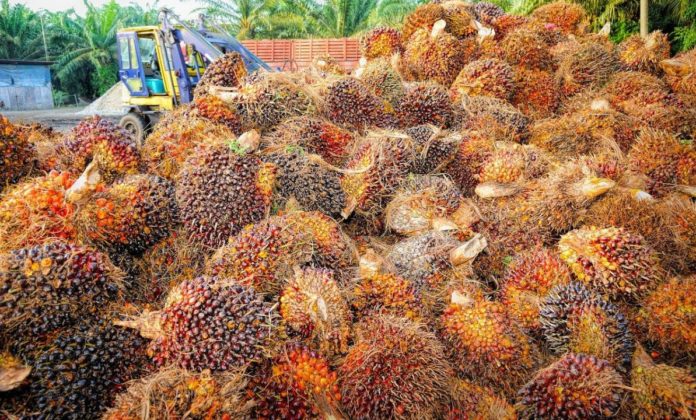The palm oil industry is not good for the planet and that has already become clear. Palm Cultivation causes deforestation, peatland drainage, fires, biodiversity loss, greenhouse gas emissions and air pollution. But what alternatives are there?
Boycott or not to boycott palm oil has been a widely debated topic in the media, but also one that raises more and more questions. The European Union (EU) initially banned palm oil use in biofuels due to concerns that its cultivation accelerates deforestation and global warming, destroying the habitat of already threatened species such as the orangutan, pygmy elephant and Sumatra rhino. Now the evidence to reconsider this decision is mounting.
Boycotting palm oil would only be the way to go if there is a viable and more sustainable alternative. Both the WWF and Greenpeace think that the boycott would not be productive. Removing palm oil from most products will lead manufacturers to use another vegetable oil or animal fat. This substance has an incredibly high level of productivity, so replacing it with another vegetable oil could occupy up to ten times more land, according to some calculations.
Why turning down palm oil is only going to make the situation worse
An international group of scientists led by Erik Meijaard has conducted a study comparing the impact of palm oil compared to other vegetable oils. While there are very serious environmental hazards when it comes to the palm oil industry, research on the impact and offsets of other crops is very limited.
“Our Review highlights that although substantial gaps remain in our understanding of the relationship between the environmental, socio-cultural and economic impacts of oil palm, and the scope, stringency and effectiveness of initiatives to address these, there has been little research into the impacts and trade-offs of other vegetable oil crops,” write the study authors.
- Does This Mean We Stopped Being Animal and Started Being Human Due to ‘Copy Paste’ Errors?
- The One Lifestyle Choice That Could Reduce Your Heart Disease Risk By More Than 22%
- Aging: This Is What Happens Inside Your Body Right After Exercise
- Immune-Boosting Drink that Mimics Fasting to Reduce Fat – Scientists ‘Were Surprised’ By New Findings
- Gun Violence in America: What They Don’t Talk About at the Debate
Overall, the demand for vegetable oils, including palm oil, is set to increase by 46% by 2050. While other vegetable oil crops could compete for this demand, many also require deforestation and land clearing.
Palm oil crops, on the other hand, yield up to ten times more per unit of land and can be grown in sites unsuitable for many other crops. In a 2018 International Union for Conservation of Nature report, it was reported that oil palms make up about 35% of all vegetable oil crops but only grow on 10% of allotted land.
Oil Palm played a major role in deforestation around the world when new plantations were added. But between 2000 and 2013, a review of 23 studies found that only 0.2% of global deforestation was caused by palm trees cultivation.
Today, alternative crops like soy cause twice the deforestation, especially in precious ecosystems like the Amazon, the study reveals.
“Other oil crops have not yet been mapped globally with similar levels of accuracy, precluding detailed assessments and comparisons,” the authors note.
Coconut oil, for example, is grown primarily in the tropics, where endemic species can be particularly vulnerable to invasive plants.
In the researchers’ opinion, there is a way to make palm oil production sustainable and to cultivate new plantations in already deforested areas or in degraded ecosystems. There is evidence to suggest that these crops could produce less carbon emissions than other oilseed plants, such as European rapeseed.
If that’s true, the palm oil boycott could actually lead to more emissions as we try to make up for its loss with other more harmful crops.
“Consistent and comparable information on the extent and consequences of other oil crops is urgently required to encourage more efficient land use,” the study concludes.
A synthetic alternative?
Meanwhile, the biotech industry believes it has found a synthetic alternative that does not involve burning or cutting down any tropical forest, but is still in the early development phase. Eventually, it could replace natural palm oil in everything from shampoos, soaps, detergents, and lipsticks, to food products like packaged bread, cookies, margarine, ice cream, and chocolate.
The research is still in a pre-commercial stage, but there has been great interest in its potential. C16 Biosciences, a three-year start-up based in New York, the University of Bath in the UK and startup Kiverdi in California are working on competing products.
What these projects have in common is that they use a fermentation process, employing large vats in a procedure similar to brewing beer. At C16 Biosciences this involves the use of genetically engineered microbes to convert food waste and industrial by-products into a product that is chemically very similar to natural palm oil.
- Does This Mean We Stopped Being Animal and Started Being Human Due to ‘Copy Paste’ Errors?
- The One Lifestyle Choice That Could Reduce Your Heart Disease Risk By More Than 22%
- Aging: This Is What Happens Inside Your Body Right After Exercise
- Immune-Boosting Drink that Mimics Fasting to Reduce Fat – Scientists ‘Were Surprised’ By New Findings
- Gun Violence in America: What They Don’t Talk About at the Debate
Researchers feed yeast sugar, then the yeast grows and is capable of producing large amounts of oil within its cells. Then, it is necessary to squeeze that oil or extract it in another way.
But the challenges are considerable. To be commercially successful on a large scale, a synthetic alternative must be able to mimic the versatility of natural palm oil by making it a suitable substitute in everything from food to household products.
